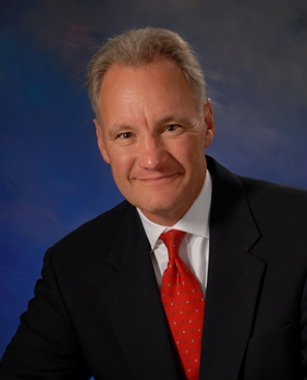Reforming Your Bible Study
There is evidence in early church history and in Medieval and Reformation history of the existence of a particular kind of Bible study. It is prescribed by God in I Corinthians 14. Wherever or whenever Christ was building and reforming His Church, this kind of Bible study could be found. Conversely, when this kind of group Bible study lapsed, the Church somehow fell into the hands of men and stopped growing or reforming.
It was a "most important" factor in Reformation history. John Calvin in his Ecclesiastical Ordinances (15-41) prescribed such a meeting every Friday evening. Knox required it for the English congregation in Geneva (1556). John Lasco (1550) required it in London. Calvin probably learned of it from Martin Bucer in Strasbourg. The French Book of Order called it a "Colloquy". For the Dutch it was an important part of their "Consistory". The Scots called it first the "Exercise" and then the "Society" meeting. Zwingli and Kuiper warned about abuses that must not be allowed to creep in, just as does the Apostle Paul in 1 Corinthians 14.
John Knox, with reference to I Corinthians 14, in his first Book of Discipline called it "The Exercise" and required it be each Thursday night in every parish.
"To the end that the Church of God may have a trial of men's knowledge, judgment, graces and utterances...And also such as somewhat have profited in God's Word may from time to time grow to more full perfection to serve the Church as necessity shall require.”
And Knox added,
"It is important that every town...one certain day every week be appointed to that exercise which St. Paul called prophesying."
The agenda for this meeting was carefully prescribed. First, the Scripture for that day is read (as appointed beforehand). Next, one man explains it and in doing so may not preach, must be "short,” and must be opening the mind of the Holy Ghost on that text. Then a second man "adds" (briefly), a third man may add (more briefly) so that everyone understands, and then all speakers are removed and "censured" (i.e. not so much criticized as questioned). Lastly, the whole group has a discussion and decisions or conclusions are made about "what we’re going to do about it.”
The format could be compared to three types of 20 century inductive Bible studies wherein" (1) No one comes really prepared and we share mutual ignorance; (2) One person is totally prepared, "preaches" as we give nodding assent or he "teaches" and we "learn", (3) Everyone comes prepared and we "share" our results with everyone else.
But Knox's Reformation "Exercise" study was more than any of these because everyone prepares in advance, three expound in detail and are critiqued, not only in terms of what God is saying, but also in terms of how it was studied, and then applications are made. So that everyone learns, not only what God is saying, but also how to study and grow on into maturity and conviction, They specified that, "The ministers each in turn, shall expound the Word of God, so that each may show how he practices the study of Scripture and the method and manner of treating same."
During the "Killing Times" (1660-1690) in Scottish Reformation history, when the church had to "go underground" and the pastors were "outed" or killed, the people revived Knox's "exercise" meetings and the Church not only survived,) she multiplied and prospered. These exercise meetings came to be called "Society" meetings.
These Reformation Societies organized themselves into a "Correspondence". Each society would study the same passage and then the societies in one Shire would collect their "Conclusions" and send them to Loch Goin, John Howie's home, and there they would be reviewed and synthesized or condensed to form "The Conclusions of the United Societies of Southwest Scotland." This Correspondence of United Societies of Southwest Scotland held the Reformation Church together.
But individual societies continued to meet until well into the 18th century. Some societies later made up a Testimony out of those Conclusions and organized the Reformation Presbyterian Church. One congregation in that Church was made up of 26 Society meetings. And from them came, over a 50 year period, 30 ministers, 2 seminary professors, and 3 missionaries. One elder said these Society meetings were "admirable schools for training men to study and discriminate regarding divine truth.” Knox said, "the face of the Kirk must be constantly reforming."
If the face of the Church is to continue reforming today, she must find the kind of Reformation Society meeting that the Apostle Paul was calling for in I Corinthians 14, where men who are not exegetes or historians or philosophers can meet in the presence of an accurate exposition of God's Word to find God’s answers and plans for the current problems and opportunities of life. These will be meetings where men and women can come to "Conclusions" which will be so closely related to convictions that they would be willing, if necessary, to die for them. That “1 Corinthians 14 kind-of-study" would continue to be a very important factor in bridging the gap between history and theology, organization and paper testimony, personal profession and practice, political and moral truth. That would be a “Reformation Society" meeting.





















